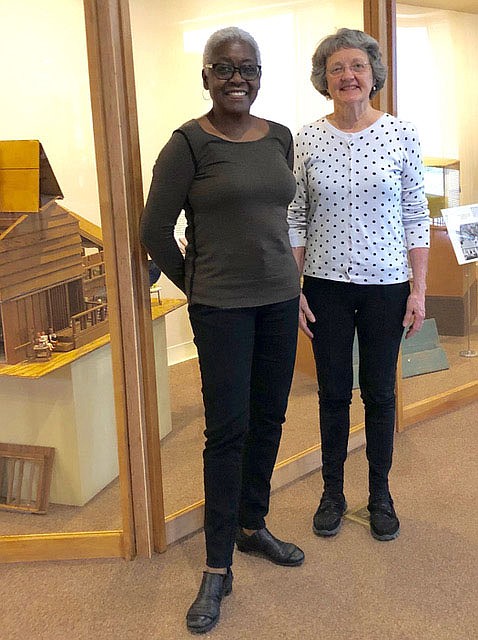The Washington County Community Remembrance Project, in partnership with the Equal Justice Initiative in Montgomery, Ala., will unveil a marker at 10 a.m. Saturday in Fayetteville's Oaks Cemetery venerating the lives and memorializing the deaths of Aaron, Anthony and Randall, three victims of racial terror in Washington County in 1856. A dedication and awards ceremony will follow at the Fayetteville Public Library from 12:30 until 4 p.m. and will feature food from Secondhand Smoke, local art, music from the St. James Baptist Church Youth Choir and the announcement of the winners of EJI's Racial Justice Essay Contest.
The seeds for the event were planted when the WCCRP project leader, RoAnne Elliott, visited Montgomery to view EJI's Legacy Museum: From Enslavement to Mass Incarceration, an exhibit that seeks to memorialize the lives of more than 4,400 African-American men, women and children who were the victims of racial terror between 1877 and the 1950s. Elliott says the experience of the museum was impossible to leave behind.
"The most moving part was walking through the monument on opening day with Black people who were looking on the pillars for the names of their people, their family members -- that just brings it right home," says Elliott. "This is real. This isn't some dusty old museum. These people are looking for the people that they're descended from. The names on the monument are from the 1870s until the 1950s -- so, for some people, it wasn't even that long ago for them."
Elliott returned to Northwest Arkansas and soon found a multiracial group of about a dozen people who were interested in facilitating a local effort. They sought partnership with EJI's Community Remembrance Project, through which EJI works with communities to "memorialize documented victims of racial violence and foster meaningful dialogue about race and justice today." The application process was extensive, but with support from Fayetteville Mayor Lioneld Jordan's office, assurance of a broad coalition of other involved organizations and the extensive historical information the group had gathered, their project was approved.
Pertinent research for the project was uncovered by historian Margaret Holcomb, who discovered an oral account of the lynchings of Aaron, Anthony and Randall, enslaved men accused of murdering James Boone, the enslaver of Aaron and Anthony. Those two young men were tried at the Washington County Courthouse on July 7, 1856, where Anthony was proven innocent and Aaron was released due to lack of evidence. They were kidnapped by a violent mob and lynched immediately afterward. Randall was tried next, was found guilty by an all-white jury, and hanged by the state on Aug. 1.
The oral history Holcomb discovered indicated that "on May 29, 1856, James Boone attempted to sexually assault an enslaved Black woman who fatally assaulted him in self-defense. The Boone family then implicated Aaron, Anthony and Randall in Boone's death," according to the WCCRP website.
More News
FAQ
Washington County Remembrance Project Memorial Plaque Unveiling
WHEN/WHERE — Plaque unveiling, 10 a.m. Saturday at Oaks Cemetery, 1121 S. Dunn Ave., Fayetteville. Dedication and awards ceremony, 12:30-4 p.m. Saturday at the Fayetteville Public Library Event Center, 401 W. Mountain St.
COST — Free
INFO — 575-4884
